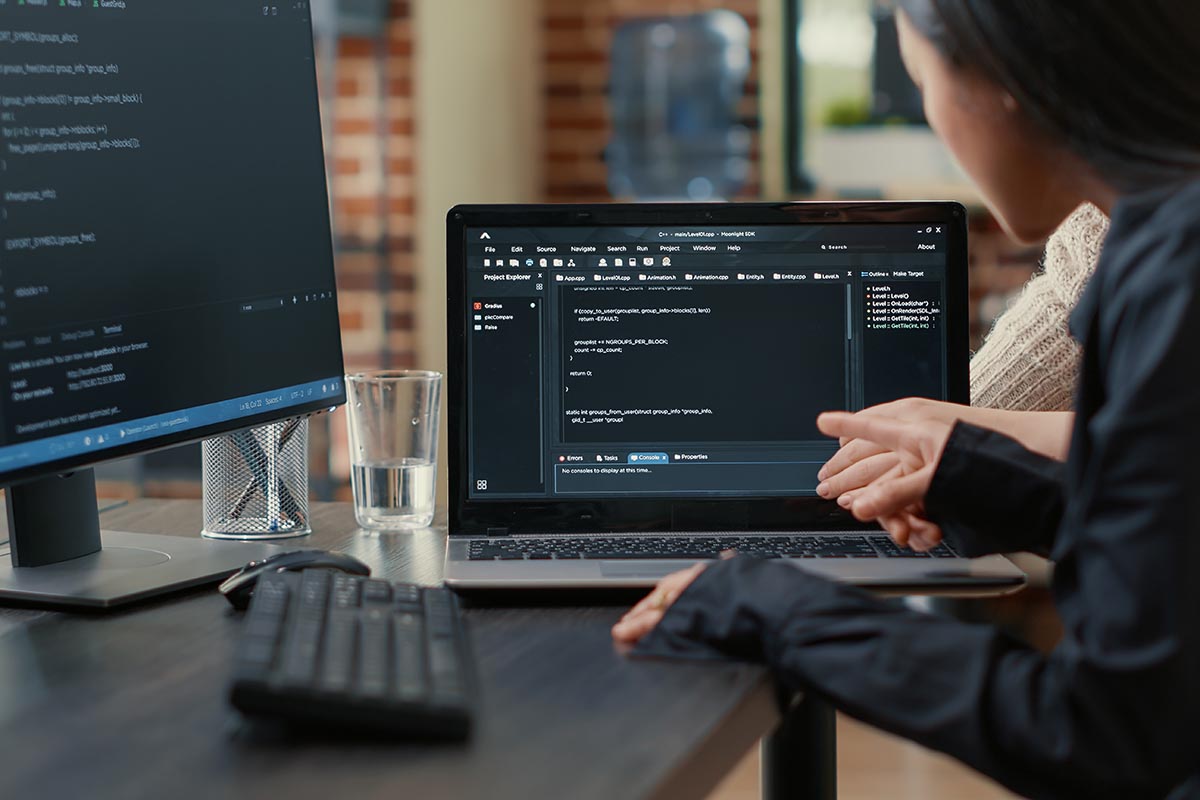Best Examples Of Trends In Healthcare Software And New Emerging Solutions
Everyone visits the hospital – but what will the doctor of the future look like? Will they be a robot, or will they always use VR-glasses? Read the article – and find out! The last few years have become significant for medicine.
New directions, emerging techniques, and digital technologies made them so essential. The medical sphere is blurring the boundaries and opening the doors for interaction. Healthcare software makes futuristic innovations real right now.
All these tools can bring medicine to a new qualitative level. And also to make it more personalized. So it will be able not only to deal with the consequences of diseases but also to influence the causes of ailments. Collecting a large amount of data is necessary to understand causal relationships between them.
The most popular usages of software in medicine that make progress in nursing right now are the ones that are already commonly used. But in healthcare and any other sphere, there are emerging trends that everyone starts to use. Therefore, it is useful to get to know them before they become widely popular.
Examples Of Software Used In Medical Field
We use a variety of software in medicine every day. It’s being used to streamline administrative and care processes such as with progress notes in nursing so that more personalized care can be given. But there is also room for development and innovations here. For example, even popular healthcare apps can be easily updated for good.
mHealth apps
Mobile applications are becoming an integral part of every person’s life. Thus, it is not surprising that applications have become one of the main development directions in medicine. The main drivers of growth are rapid advances in mobile technology and applications. As well as the rise in lifestyle diseases and patient awareness of the possibilities of mobile medicine.
According to Allied Market Research’s analytical agency, the volume of the global mobile health market in 2020 was at $ 15.5 billion.
Artificial Intelligence
In recent years, human skepticism about AI capabilities has diminished greatly. Now, this technology is usually perceived as a real assistant in tasks of varying complexity. Today the AI market is generally divided by three IT giants – IBM, Google, and Microsoft. Most recently, Microsoft announced the launch of the Microsoft Healthcare NExT project. The main focus of this project will be the fight against cancer.
Trends in Healthcare Software Blockchain
One of the main barriers for medicine to enter the digital space is data transmission and storage security. However, blockchain technology can ensure the secure exchange of confidential data between a patient and a doctor. All this due to its anonymity, decentralization, and cryptographic encryption. Plus, private hospitals can use crypto-saving accounts for current operations.
There is always a potential to improve the technologies – and there are emerging types of healthcare software.
Software For Healthcare In 2021
Digital medicine has the potential to improve healthcare significantly. But until recently, this was not a priority for investors. However, if anything positive has emerged from the coronavirus pandemic, it has opened up a new way to think about healthcare.
Virtual Reality
Virtual reality has a huge range of applications within healthcare. The global digital medical VR market is now projected to grow to $ 2.4 billion by 2026. All thanks to its potential to cut the need for certain drugs or surgeries. Doctors can now provide virtual urgent care to patients, by viewing the inside of the human body and performing robotic surgeries in VR. The technology is currently used to treat chronic pain, anxiety, and PTSD.
Big Data
Countries around the world are working to create more accessible electronic health records. For example, in Sweden, all citizens and residents have a personal identification number. Researchers with access to digital health portals can leverage all these gigantic amounts of data. In addition, access to a unified patient record system has many benefits—for example, lower medication errors and easier preventive care.
Self-monitoring Wearable Devices
Today, hospitals accelerate the adoption of self-management solutions for patients with chronic conditions. This saves money as chronic conditions account for about 80% of healthcare costs. In addition, wearable devices promise significant results, from heart rate sensors and exercise trackers to sweat sensors that help diabetes track blood sugar and pulse oximeters. There are many types of gadgets to make patient’s lives easier.
Trends in Healthcare Software: Futuristic Software
There are also types of healthcare software that are only being constructed now but already have promising results. For example, medical robots-assistants that can track the health of people in the family. Or brain-computer interfaces. They will be able to allow us to control computers with our minds.
And also to mitigate the threat of AI and help us better understand and treat brain disorders. All we have to do is implant a microchip into our brain. Technology is changing our world at an incredible rate. And healthcare will undoubtedly see tremendous benefits from these innovations.



















